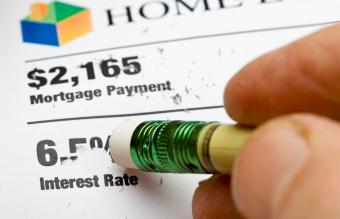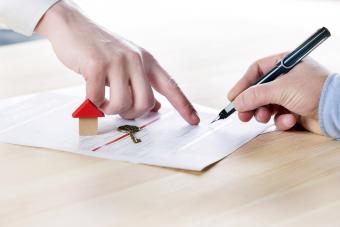
When you establish financing for the purchase or refinance of a home, numerous fees are added into the equation. One of these fees is the loan origination fee. In a nutshell, a loan origination fee is the fee that a loan officer or mortgage broker charges for establishing and processing your loan application.
Figuring a Loan Origination Fee
The loan origination fee is expressed as a percentage of the loan amount. A typical loan origination fee in the U.S. can range from .5 to 1 percent of the loan amount. If the loan officer or mortgage broker is charging a 1-percent origination fee, the fee is 1 percent of the loan amount.
As an easy example, if the loan amount is $100,000, a 1-percent loan origination fee is $1,000 ($100,000 x 1 percent = $1,000). If the loan amount is $200,000, a 1-percent origination fee is $2,000.
How the Fee Is Collected
Loan officers and mortgage brokers tend to collect loan origination fees as part of the closing costs. Closing costs are paid by borrowers at the time of closing. Typically, the attorney or title company conducting the closing requires a borrower to bring any fees he or she has to pay as a cashier's check. The title company or real estate attorney then pays the loan officer, mortgage broker, and any third-party fees out of the funds the borrower brings to closing.
If the lender allows the borrower to roll the amount of the closing costs into the loan amount, the borrower does not have to bring any money to the closing table. Instead, the borrower will finance the cost of the fees, including the loan origination fee, and the fee becomes part of his or her mortgage amount.
Locating the Fee in Your Paperwork
Loan origination fees are listed in Block 1 on the Good Faith Estimate (GFE) that a lender provides to the borrower when the borrower applies for the loan. The Federal Real Estate Settlement Procedures Act requires lenders to provide a GFE, which is an estimate of the fees due at closing. On the GFE, the loan origination fee must be listed. It can be called by several other names, so you might see different line items on the GFE, including:
- Commitment fees
- Application fee
- Processing fees
- Underwriting fees
No matter how many names they assign the costs, the total fee adds up to the total origination fee.
Avoiding the Fee
Origination fees can also include points. Mortgage points are a percentage of the loan amount you pay to lower the interest rate you pay on your mortgage. You can choose to pay mortgage origination fees, or you can choose not to pay the fees. If you choose not to pay the fees, lenders tend to increase the interest rate you pay on the mortgage. Additionally, you can "buy down" your interest rate by paying additional points, such as 1.5, 2 or even 3 percent of the mortgage amount.
The Cost of a Mortgage
When you are working with a mortgage broker, loan officer or lender, you are working with a professional who will process your mortgage application. The origination fee covers this service. You can opt to pay the fee or not pay it, but if you don't pay it at closing, you'll likely wind up with a higher interest rate on your mortgage.







